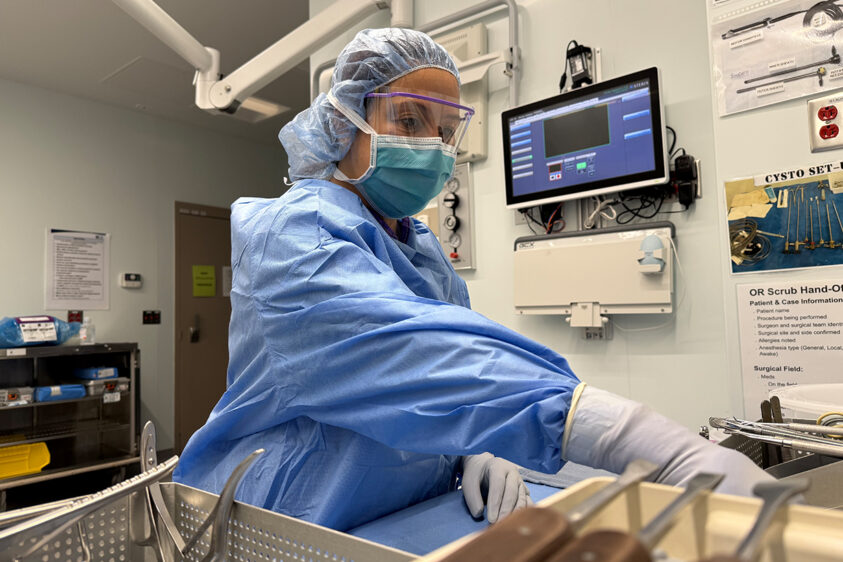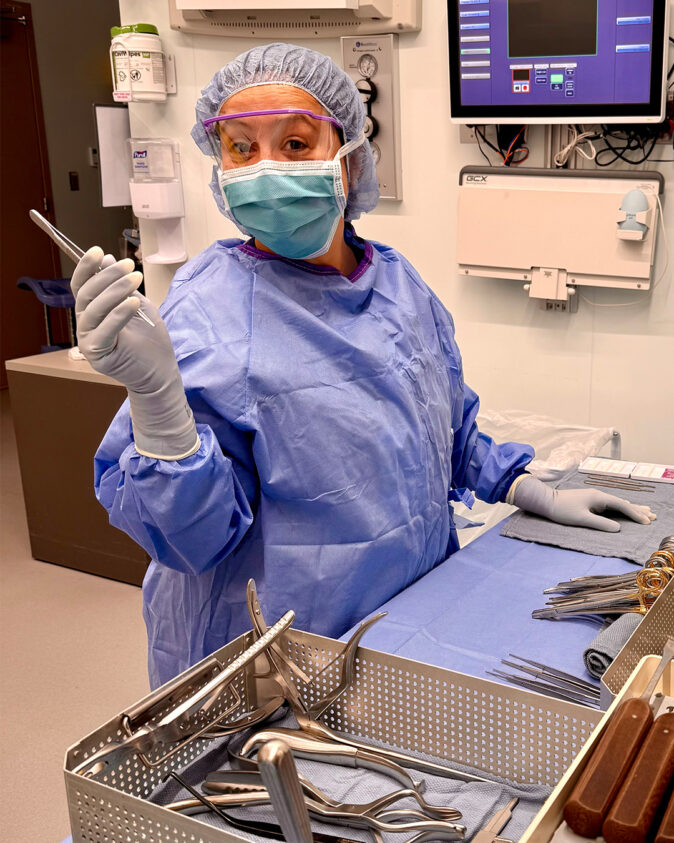The University of Rochester celebrates our incredible employees who make the University a better place to work, grow, and serve. In this series, get to know some of the many individuals who turn our mission into action each day—one story at a time.
Supporting surgical excellence—Meet a member of our surgical technologist team

Donabel Bona-Hueber
Certified Surgical Technologist
URMC Operating Room
How and when did you get into the field of surgical technology?
I’ve always been in healthcare, but it was not until 2018 that I stumbled upon the surgical tech program at MCC. In 2019, I started the program in my 40s and graduated with honors in 2021. Ever since, I have been with URMC and piloted the Primary Service Surgical Technologist role, ensuring specialized support in complex reconstructive and facial, hand, and leg trauma cases.
What does a typical working day entail for you as a surgical technologist (tech)?
I arrive before sunrise to review the surgical schedule and set up a sterile field with precision—every instrument, suture, and implant in its place. Once surgery begins, I work shoulder to shoulder with surgeons, anticipating their next move and passing instruments with seamless teamwork. I focus on patient safety and keeping the surgical flow smooth. In between cases, I reset the room and do it all over again. Often, I’m teaching new orientees as well.
How do you stay focused and prepared during procedures?

Long hours and call shifts are very challenging, but it is my responsibility to be safe and keep the patients safe. That’s what keeps me steady, no matter how complex the case.
What is something people might not realize that surgical techs do?
Certified surgical technologists (CSTs) are guardians of sterility. We constantly watch for and prevent breaks in sterility. CSTs keep the operating room (OR) flowing by anticipating the surgeon’s needs, so the procedures move safely and efficiently. CSTs learn hundreds of instruments and complex services. We are trouble shooters and problem solvers. Most importantly, we advocate for patient safety and ensure nothing is left behind.
What’s one thing about your career that makes you proud?
After long hours, I step out of the OR knowing I made a direct impact on patients’ lives and that I supported my surgical team. I can sleep at night knowing I did the best I could for my patients’ well-being, amidst any odds, even though they may never see me.
What advice would you give someone starting in this field and what skills are important?
Never stop learning and always advocate for your patients. Attention to detail, anticipation, adaptability, and teamwork are important in the OR.
